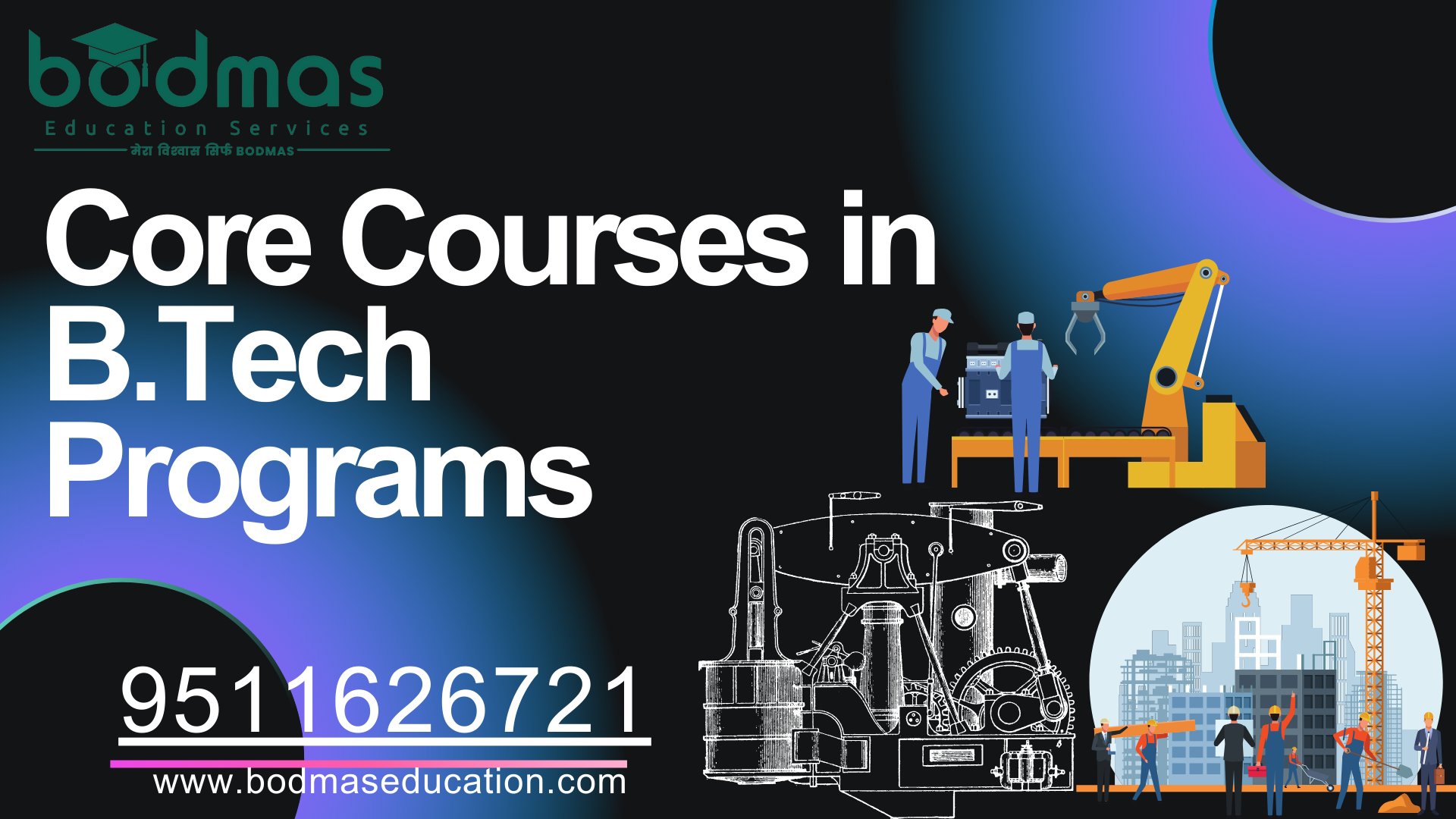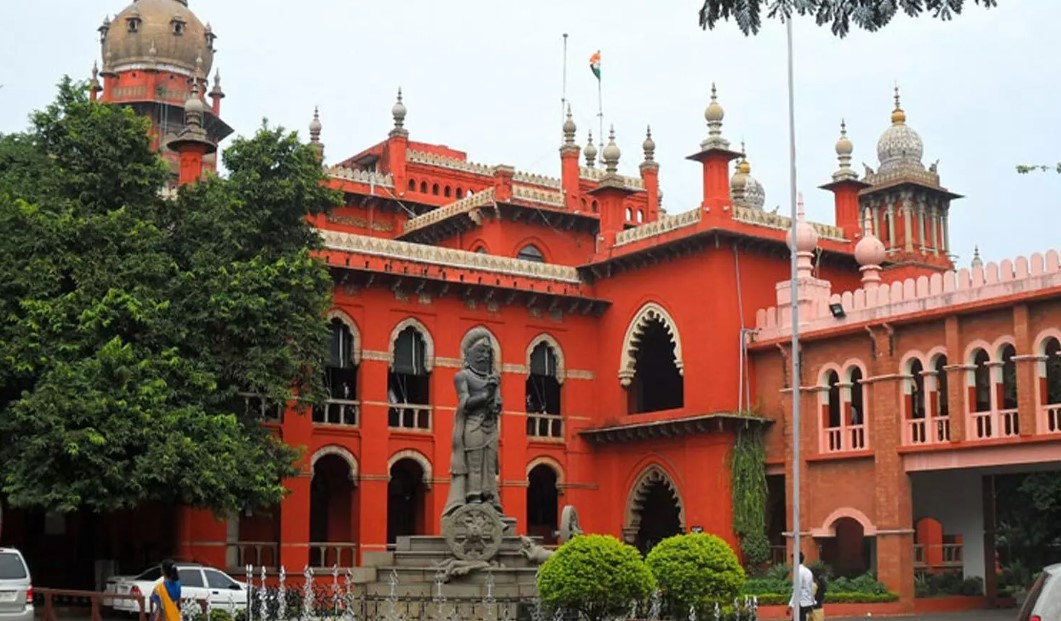
A Bachelor of Technology (B.Tech) program is designed to provide students with a comprehensive foundation in their chosen field of engineering. The core courses are integral to this educational foundation, equipping students with essential theoretical knowledge and practical skills. Below is a detailed breakdown of core courses typically found in various B.Tech specializations.
1. Mathematics Courses
Mathematics forms the backbone of engineering, providing the tools necessary for problem-solving and analysis.
- Calculus (Differential and Integral)
- Topics: Limits, continuity, derivatives, integrals, series, multivariable calculus, and applications.
- Applications: Used in virtually every engineering discipline for modeling and solving problems.
- Linear Algebra
- Topics: Matrices, determinants, vector spaces, eigenvalues, eigenvectors, and linear transformations.
- Applications: Crucial for computer graphics, control systems, and structural analysis.
- Probability and Statistics
- Topics: Probability theory, random variables, distributions, statistical inference, hypothesis testing.
- Applications: Essential in quality control, risk assessment, and data analysis.
- Numerical Methods
- Topics: Numerical solutions to equations, interpolation, numerical integration and differentiation.
- Applications: Used in simulations, optimizations, and solving engineering problems that cannot be addressed analytically.
2. Physics Courses
Physics courses provide a fundamental understanding of natural laws and principles that govern engineering systems.
- Engineering Physics
- Topics: Mechanics, electromagnetism, optics, and modern physics.
- Applications: Foundational for electrical, mechanical, and materials engineering.
- Mechanics
- Topics: Statics, dynamics, kinematics, and energy principles.
- Applications: Essential in designing and analyzing mechanical systems and structures.
- Thermodynamics and Heat Transfer
- Topics: Laws of thermodynamics, heat engines, refrigeration, conduction, convection, and radiation.
- Applications: Vital for mechanical, aerospace, and chemical engineering.
3. Engineering Mechanics Courses
These courses delve into the forces and movements that affect engineering systems.
- Engineering Mechanics
- Topics: Force systems, equilibrium, structures, friction, kinematics, and dynamics of particles and rigid bodies.
- Applications: Used in civil, mechanical, and aerospace engineering to design stable structures and mechanisms.
- Strength of Materials
- Topics: Stress, strain, torsion, bending, shear, and deflection in materials.
- Applications: Key for ensuring the integrity and safety of engineering structures.
- Fluid Mechanics
- Topics: Fluid properties, fluid statics, fluid dynamics, and flow measurement.
- Applications: Crucial for civil, mechanical, and chemical engineering in designing systems involving fluids.
4. Basic Engineering Courses
These courses cover fundamental engineering concepts and skills.
- Engineering Graphics
- Topics: Technical drawing, computer-aided design (CAD), geometric constructions, orthographic projections.
- Applications: Essential for visualizing and designing engineering components and systems.
- Engineering Materials
- Topics: Properties of materials, material selection, failure analysis, and testing of materials.
- Applications: Important for selecting appropriate materials for different engineering applications.
- Engineering Ethics and Professional Practices
- Topics: Ethical theories, professional responsibilities, case studies, codes of conduct.
- Applications: Guides engineers in making ethical decisions and adhering to professional standards.
5. Electrical and Electronics Courses (for Electrical and Electronics Engineering)
These courses cover fundamental concepts in electrical and electronic systems.
- Circuit Theory
- Topics: Ohm’s Law, Kirchhoff’s laws, network theorems, AC/DC circuits, transient analysis.
- Applications: Foundational for designing and analyzing electrical circuits.
- Electrical Machines
- Topics: Transformers, AC/DC machines, synchronous machines, motor control.
- Applications: Essential for power generation, transmission, and motor-driven applications.
- Digital Electronics
- Topics: Logic gates, combinational and sequential circuits, microprocessors, and microcontrollers.
- Applications: Vital for designing digital systems, embedded systems, and consumer electronics.
6. Computer Science Courses (for Computer Science Engineering)
These courses focus on software development, algorithms, and data management.
- Data Structures and Algorithms
- Topics: Arrays, linked lists, stacks, queues, trees, graphs, sorting, and searching algorithms.
- Applications: Core for software development, optimizing performance, and solving complex problems.
- Object-Oriented Programming
- Topics: Classes, objects, inheritance, polymorphism, encapsulation, and abstraction.
- Applications: Fundamental for software design and development, especially in large-scale systems.
- Database Management Systems
- Topics: Database design, SQL, normalization, transactions, and indexing.
- Applications: Essential for managing and retrieving data in various applications, from web apps to enterprise systems.
7. Civil Engineering Courses
These courses provide knowledge essential for designing and constructing infrastructure.
- Surveying
- Topics: Measurement techniques, leveling, mapping, and use of surveying instruments.
- Applications: Critical for land development, construction, and infrastructure projects.
- Building Materials and Construction
- Topics: Properties of construction materials, concrete technology, building techniques, and safety practices.
- Applications: Key for selecting materials and methods in construction projects.
- Structural Analysis and Design
- Topics: Analysis of structures, design of beams, columns, slabs, and foundations.
- Applications: Crucial for ensuring the safety and stability of buildings and other structures.
8. Mechanical Engineering Courses
These courses cover the principles of designing and manufacturing mechanical systems.
- Manufacturing Processes
- Topics: Casting, welding, machining, forming, and additive manufacturing.
- Applications: Important for creating mechanical parts and products.
- Machine Design
- Topics: Design principles, failure analysis, material selection, and design of mechanical components.
- Applications: Essential for developing machines and mechanical systems that are safe and efficient.
- Control Systems
- Topics: System modeling, feedback control, stability analysis, and control system design.
- Applications: Vital for automation, robotics, and any system requiring precise control.
9. Environmental Engineering Courses
These courses focus on environmental protection and sustainable engineering practices.
- Environmental Science and Engineering
- Topics: Environmental systems, pollution control, sustainable development, and regulatory frameworks.
- Applications: Key for designing systems that minimize environmental impact.
- Air and Water Pollution Control
- Topics: Sources of pollution, control technologies, treatment processes, and environmental regulations.
- Applications: Essential for protecting air and water quality in engineering projects.
- Solid and Hazardous Waste Management
- Topics: Waste generation, collection, treatment, disposal, and recycling.
- Applications: Important for managing waste sustainably and reducing environmental impact.
10. Chemical Engineering Courses
These courses delve into the principles of chemical processes and their applications in industry.
- Chemical Process Calculations
- Topics: Material and energy balances, process stoichiometry, thermodynamics.
- Applications: Fundamental for designing and analyzing chemical processes.
- Fluid Mechanics and Unit Operations
- Topics: Fluid flow, heat and mass transfer, separation processes.
- Applications: Key for designing and optimizing chemical plants and processes.
- Chemical Reaction Engineering
- Topics: Kinetics, reactor design, catalysis, and reaction mechanisms.
- Applications: Essential for developing efficient and safe chemical reactions in industrial processes.
Engineering Careers
A B.Tech program’s core courses are meticulously designed to provide students with a robust foundation in their chosen field. These courses ensure that graduates possess the necessary theoretical knowledge and practical skills to succeed in their engineering careers. The exact structure and content of these courses may vary across universities and specializations, but the core principles and objectives remain consistent.

























